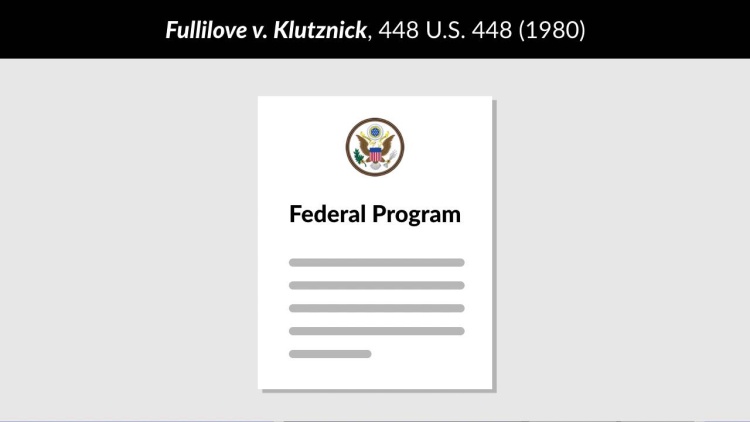City of Richmond v. J.A. Croson Co.
United States Supreme Court
488 U.S. 469 (1989)
- Written by Megan Petersen, JD
Facts
In 1983, the City of Richmond, Virginia (city) (defendant) adopted the Minority Business Utilization Plan (MBUP), which required primary contractors to which the city awarded construction contracts to subcontract at least 30 percent of the dollar value of the contract to one or more minority business enterprises (MBEs). The 30 percent set-aside did not apply to primary contractors that were themselves controlled by minority groups. The city adopted the plan after studies suggested that very few contracts were awarded to MBEs despite the city’s large minority population. No direct evidence existed, however, of any discrimination against MBEs by the city or its prime contractors. The J.A. Croson Co. (Croson) (plaintiff), a primary contractor, lost its contract with the city after failing to designate 30 percent of the value of its contract to MBEs. Croson sued the city in federal district court, which upheld the constitutionality of the MBUP. The court of appeals affirmed, but the United States Supreme Court remanded the case for consideration under a strict-scrutiny standard of review. On remand, the court of appeals held the MBUP did not pass strict scrutiny, and Richmond appealed to the United States Supreme Court.
Rule of Law
Issue
Holding and Reasoning (O’Connor, J.)
Concurrence (Kennedy, J.)
Concurrence (Scalia, J.)
Concurrence (Stevens, J.)
Dissent (Marshall, J.)
What to do next…
Here's why 905,000 law students have relied on our case briefs:
- Written by law professors and practitioners, not other law students. 47,100 briefs, keyed to 995 casebooks. Top-notch customer support.
- The right amount of information, includes the facts, issues, rule of law, holding and reasoning, and any concurrences and dissents.
- Access in your classes, works on your mobile and tablet. Massive library of related video lessons and high quality multiple-choice questions.
- Easy to use, uniform format for every case brief. Written in plain English, not in legalese. Our briefs summarize and simplify; they don’t just repeat the court’s language.





